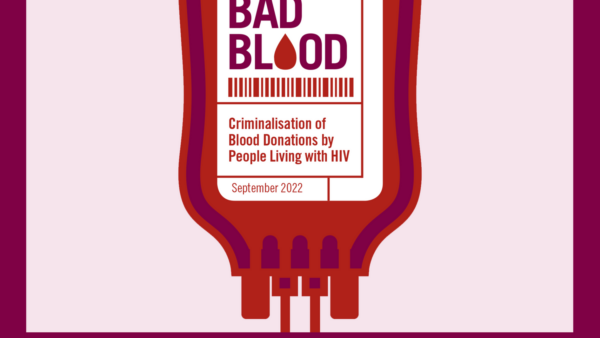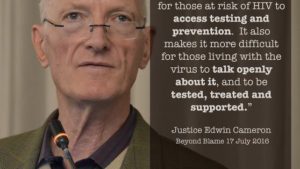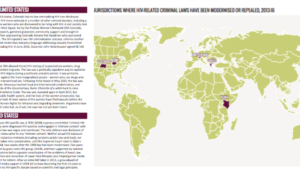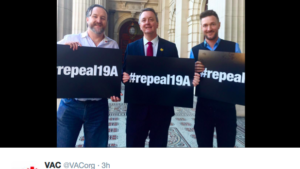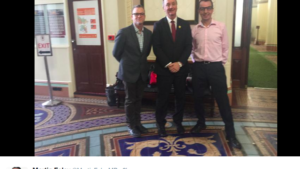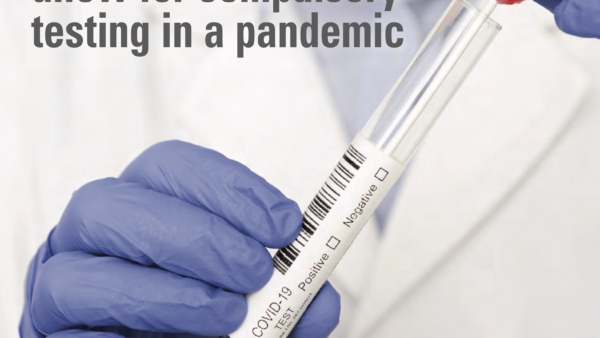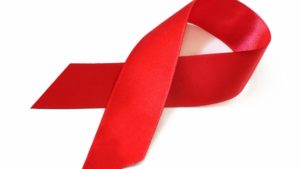Overview
Victoria no longer has an HIV-specific criminal law, however general criminal provisions have been used to prosecute HIV cases in Victoria.
Prior to repeal in 2015, section 19A of the Crimes Act made it an offence to intentionally cause a ‘very serious disease’ (defined only as HIV). This law carried a penalty of up to 25 years’ imprisonment. This was the only such law in Australia, as other states and territories have only used general criminal provisions and public health laws to prosecute HIV cases. Following sustained advocacy by local civil society, the state government announced in April 2015 that section 19A would be repealed in an attempt to reduce stigma against people living with HIV.
Victoria has had more HIV criminalisation cases than any other Australian jurisdiction. Of the 20 cases known to have been investigated, most proceeded to trial. In the first two cases in 1991, which were against sex workers, charges were withdrawn before the cases went to trial. Investigations have not proceeded to trial in at least two more recent cases (2011 and 2015). The majority of cases which proceeded to trial have involved allegations of ‘exposure’ (15 of 20 cases). All accused have been men except for one of the sex workers charged in 1991.
These cases have involved charges under many different sections of the Crimes Act, including section 19A prior to its repeal, but more commonly under general criminal laws including intentionally causing serious injury (section 16), conduct endangering life (section 22), and conduct endangering persons (section 23).
The first case that resulted in conviction occurred in 1993. In this case, a man was sentenced to 16 months’ imprisonment for making a false statement when donating blood, incorrectly declaring that he had no reason to believe he was living with HIV. After HIV was detected in his blood, the man was charged under section 136 of the superseded Health Act 1958. To our knowledge this is the only blood donation case that has been prosecuted in Australia, and was one of the first such cases globally (see our report, Bad Blood, for a global analysis of the criminalisation of blood donations).
All the subsequent case reports we have received relate to alleged sexual ‘exposure’ or transmission.
A precedent setting case in 2011 clarified a number of points of law. The County Court of Victoria had convicted the accused of multiple offences relating to condomless sex with a number of men. The Supreme Court of Victoria Court of Appeal found the accused not guilty of some of those offences. The Court found that to be guilty of attempting to infect another person with HIV, a person must believe they are ‘infectious’, not that they may be ‘infectious’. The Court also ruled that to be guilty of a charge of ‘reckless conduct endangering persons’, it must be established that it was not reasonably possible that the complainant was aware of the risk of HIV transmission and had voluntarily assumed the risk or, alternatively, that the applicant believed that the complainant was consenting to the assumption of the risk.
Another case, decided in 2008, is also important. That case involved a man accused of transmitting HIV to his ex-girlfriend at some point between 2000 and late 2004. The accused was diagnosed HIV-positive in late 2003 but did not inform his partner, who was diagnosed in late 2004. The Magistrate found that the man could not be convicted of ‘reckless conduct endangering a named person’ because there was a reasonable possibility that the complainant was already HIV-positive by the time the accused was diagnosed. The Court held there was no evidence to establish when either party became HIV positive and directed the jury to acquit the accused on the basis of insufficient evidence.
The Public Health and Wellbeing Act also has provisions relating to HIV. Section 111 states that a person who has or suspects they have an infectious disease (including HIV) should ascertain whether they have HIV, learn what precautions they can take, and take all reasonable steps to eliminate or reduce the risk of transmission. It also says that a person at risk of acquiring an infectious disease should take all reasonable precautions to avoid contracting the disease. The Act clearly states that the spread of HIV should be prevented or minimised with the minimum restriction on the rights of any person. Section 155 makes it an offence to provide a statement which they know to be false when giving a blood donation (replacing the offence under section 136 of the repealed Health Act). This offence carries a penalty of a fine or imprisonment for one year.
Victoria also has Guidelines for the management of people living with HIV who put others at risk. It outlines a five-stage approach and, consistent with the Act, states that the measure which is least restrictive of the client’s rights should be chosen, with escalation to higher stages only ‘if there is an ongoing pattern of behaviour that puts others at risk of HIV’. The Code aligns with the National Guidelines for Managing HIV Transmission Risk Behaviours.
In November 2021, the State Government announced that it would legislate to adopt an affirmative model of consent, following a recommendation from the Victoria Law Reform Commission, which was itself based upon a similar move in New South Wales. It is not yet clear whether this affirmative consent model will, as in New South Wales, provide for the negation of consent where the person is ‘mistaken as to the nature of the activity’, which could have ramifications for the disclosure of HIV status.
Laws
Crimes Act 1958
Section 16. Causing serious injury intentionally
A person who, without lawful excuse, intentionally causes serious injury to another person is guilty of an indictable offence.
Penalty: Level 3 imprisonment (20 years maximum).
Section 17. Causing serious injury recklessly
A person who, without lawful excuse, recklessly causes serious injury to another person is guilty of an indictable offence.
Penalty: Level 4 imprisonment (15 years maximum).
Section 22. Conduct endangering life
A person who, without lawful excuse, recklessly engages in conduct that places or may place another person in danger of death is guilty of an indictable offence.
Penalty: Level 5 imprisonment (10 years maximum).
Section 23. Conduct endangering persons
A person who, without lawful excuse, recklessly engages in conduct that places or may place another person in danger of serious injury is guilty of an indictable offence.
Penalty: Level 6 imprisonment (5 years maximum).
Crimes Act 1958
Section 19A. Intentionally causing a very serious disease
(1) A person who, without lawful excuse, intentionally causes another person to be infected with a very serious disease is guilty of an indictable offence.
Penalty: Level 2 imprisonment (25 years maximum).
(2) In subsection (1), very serious disease means HIV within the meaning of section 3(1) of the Public Health and Wellbeing Act 2008 (HIV only).
Public Health and Wellbeing Act 2008
Section 111. Principles applying to Part 8
(…)
(b) a person at risk of contracting an infectious disease should take all reasonable precautions to avoid contracting the infectious disease;
(c) a person who has, or suspects that they may have, an infectious disease should;
(i) ascertain whether he or she has an infectious disease and what precautions he or she should take to prevent any other person from contracting the infectious disease; and
(ii) take all reasonable steps to eliminate or reduce the risk of any other person contracting infectious disease
Section 155. False statements
(1) A donor must not, in a statement referred to in the Schedule, knowingly make a statement that is false in a material particular.
Penalty: 120 penalty units or imprisonment for 1 year.
(2) A person must not, in response to an inquiry of the kind referred to in paragraph (b)(iii) in column 2 of Table 2 in the Schedule, knowingly make a statement that is false in a material particular.
Penalty: 120 penalty units.
Health Act 1958
Section 136. False statements
A donor must not, in a statement referred to in this Division, make a statement that is false in a material particular. Penalty: 50 penalty units or imprisonment for two years.
Further resources
Provides first-hand account of advocacy to reform Victoria’s (Australia) Crimes Act in 2015.
Acknowledgements
Our thanks to Australian law firm Hall & Wilcox for their research assistance to confirm current relevant legislation.

